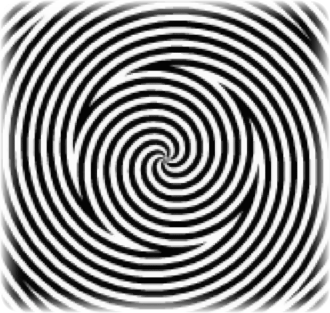

As is our perception of free will: we believe we are acting freely when we follow our own beliefs, goals or desires – but we can’t freely choose those beliefs, goals or desires. Our experience of ourselves, as having an enduring, stable identity over time, is a useful illusion. Some aspects of perception are more illusory than others. Reality, Seth believes, is the hallucination we can all agree on. Who knows what’s actually out there? But let’s assume things are out there and things exist,” he said. That’s a “question for a physicist, someone like Carlo Rovelli. That said, Seth told me as we strolled across campus in search of a sandwich, he’s open to the idea that the physical world doesn’t exist in the manner we think it does. In fact, if our brains are working properly, we’re constantly updating our predictions based on feedback from our senses – which is why ordinary perception is a “controlled hallucination”, not a fever-dream. Sometimes the term hallucination confuses people (Seth wishes there were a better word): it might suggest that perception is arbitrary, or that things don’t exist. Then he primes his audience with the sentence: “I think Brexit is a terrible idea.” When he plays the clip again, the words are so immediately discernible it’s hard to imagine how they couldn’t have been.

In his Ted talk, Seth twice plays an audio clip of a high-pitched, distorted voice that is so incomprehensible it could be speaking any language or none at all. He points to the example of #TheDress, the viral photo of a cocktail dress that to some people appears gold-and-white, and to others as blue-and-black. Rather than passively perceiving our surroundings, our brains are constantly making and refining predictions about what we expect to see in this way, we create our world. His research has led him to radical positions: the way you see yourself and the world is a controlled hallucination, Seth argues. Seth, whose academic background spans physics, psychology, computing and neuroscience, says he has come to another, more satisfying conclusion. At the other extreme, illusionists argue that consciousness is only imaginary. Panpsychists argue that consciousness is a fundamental quality of all matter – that a deckchair exhibits a different kind of consciousness from you or I, but is conscious nonetheless.

Philosophers and scientists have tried to tackle this hard problem in different ways. How can objective, physical matter give rise to the unique, subjective experience of consciousness? How could anyone adequately describe the inimitable feeling of being you, with reference only to your brain and biology? In 1994, the Australian philosopher David Chalmers outlined the challenge ahead: in a talk at the inaugural Science of Consciousness Conference in Tuscon, Arizona, Chalmers set out what he described as “the hard problem of consciousness”. Seth began studying consciousness in the mid-Nineties, a time when advances in computing and brain imaging were giving scientists new tools for understanding the mind. Tacked to the wall was a print-out headlined “12 fucking rules of success”. (As the university will no longer be receiving new funding from the Dr Mortimer and Theresa Sackler Foundation, the centre is due to be renamed.) On the bookshelves were works on psychology, philosophy, informatics, physics, a Zadie Smith novel, poetry anthologies. We spoke in his office at the University of Sussex, where he is co-director of the Sackler Centre for Consciousness Science. His close-shaven head and quiet intensity lent him a monkish air, which he periodically punctured with a joke. Seth, 49, was casually dressed in jeans, beige trainers and a blue jumper. In 2017 Seth gave a Ted talk that has since been viewed more than 12 million times, a mind-blowing, 15-minute distillation of his three decades of research, which ended with Seth paraphrasing Julian Barnes: “When the end of consciousness comes, there’s nothing to be afraid of – nothing at all.” It’s a sentiment he returned to in his bestselling 2021 book, Being You, and when we met recently in Falmer, East Sussex, he told me why: “When you see how fragile and precarious our unified consciousness is, of ourselves and of the world, when you see how many ways it can go wrong or just be abolished completely, you can either take that as a scary thing or a reminder to be very glad to be where you are.” He chooses the latter. The neuroscientist Anil Seth finds it reassuring. Whole hours or days can pass in a millisecond it’s proof – if you need it – that you can cease to be, that the world will go on without you. If you’ve ever undergone general anaesthetic then you have experienced oblivion, an interruption of consciousness more complete than even the deepest sleep.


 0 kommentar(er)
0 kommentar(er)
